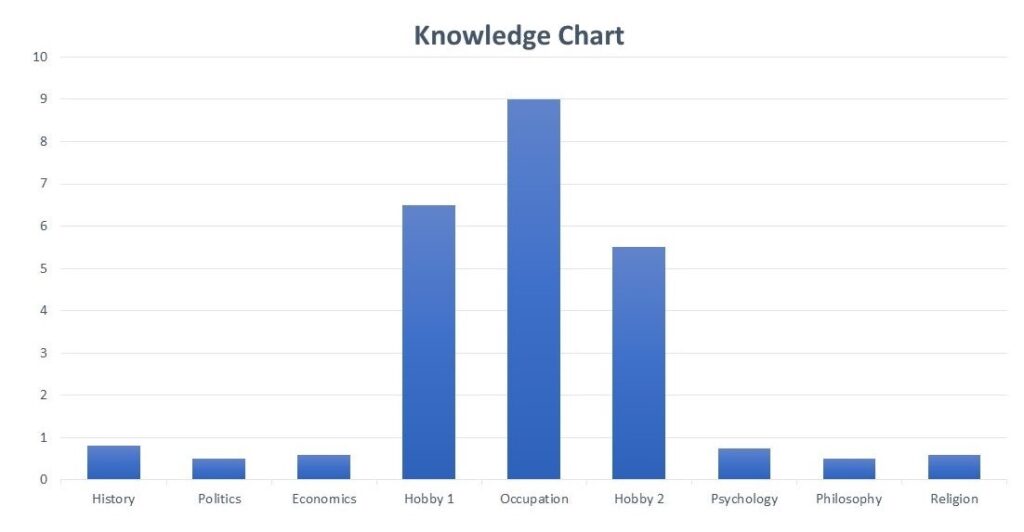Let’s talk about intelligence. Everyone knows their occupation—just look at the time we put in. And we know all about hobbies. But what of general knowledge? How do we score on something like this? Using the scale of one-to-ten, assign yourself a grade on the following subjects? Can you deliver a 30-minute lecture on any of these? If not, our mission is getting you to one.

Attaining the first level doesn’t make you an expert on anything, it simply gets you in the game. Allowing you to follow the conversation without feeling lost. Listen to any intellectual and they’ll assume you know the basics. What happened in WWII, who were these Romans, and what’s with this Magna Carta? But where would this information have come from and how did it pop into our heads? In general, doctors and businesspeople needn’t memorize every battle or a vast number of quotes, what they need is the gist. For it’s gist that takes us to the next level. So acquiring knowledge is like playing a video game. Knowing the basics is getting to one. Then you move up from there.
Cross disciplines
Why is this notion beneficial? In the beginning, when people hung around devising knowledge, they came up with everything we knew up to that point. Then, after the expansion of information, Aristotle decided subjects needed to be split. So rather than have everyone act as generalists, we began to specialize. And sure, there are benefits coming from specialization but we also lost something because certain subjects require breadth.
Second, all teaching was initially rooted in philosophy. Before the field of economics was devised, Adam Smith lectured in the department of ethics. That’s why he knew capitalism required a soul. Same goes for science. Yes, it’s great that we’ve made so many things practical but old-time educators always left room for the mystics (the unexplained). And this practice should remain.
Learning paths
It’s natural not to know things. Not knowing doesn’t make you a dummy. Spilling ketchup on your pants while dancing with a sandwich makes you a dummy. Our question is, how do I become proficient? Like someone who’s lost in a forest you need a path. High schools use curriculums but adults don’t have time for drawn-out lectures and tests. We prefer paths that take us straight to the heart. That’s our method of learning and More Letters does just this. It’s 90 Days to brilliance and you’ll be a genius in no time. Then if you wish, read on.